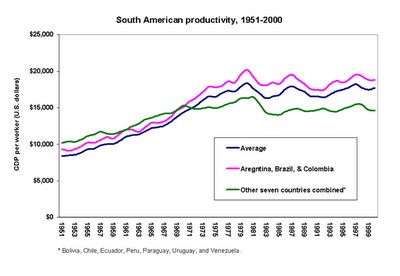Even the most humble, such as I, are sometimes forced to express opinions about economics. Such is the case with this post.
Michael Moore made his mark with the movie
Roger and Me. Moore documents the economic demise and aftermath caused by the relocation of the auto industry from his home city Flint, Michigan. Moore’s humor and satire often override the dark side of the story.
Flint was a prosperous city economically based upon the auto industry. The rise of foreign competition convinced companies like General Motors that they could no longer base their operations in cities like Flint. The consequences were catastrophic for the citizens of Flint. High unemployment ensued. No new enterprises located themselves in Flint to revive the economic fortunes of the city. This sets up the premise of the movie. Michael Moore attempts to interview Roger Smith, CEO and Chairman of General Motors and the architect of moving GM’s operations from Flint.
Moore interviews prominent national religious and political leaders who visit Flint. These leaders tell the citizens of Flint that if they keep a positive attitude, then god and good fortune will eventually provide. Moore never editorializes these interviews. The interviews stand on their own regarding the absurd notions of his interviewees.
Moore interviews the Flint civic leaders who have plans and schemes to restore Flint to its former vitality. The plans seem hopeless to repair the economic disaster the city has suffered. Moore never editorializes.
As for Moore’s confrontation with Roger Smith, I won’t spoil the movie by saying anything about its resolution.
At the center of the movie is the grim reality of economic dislocation. One can do worse than watch
Roger and Me to learn a bit about the global economy and its vicissitudes. You might even call it relevant.
That leads me to enquire into the reality and relevance of economic teaching in general. I am reminded of the first year introductory economics course I took in college back in the early Seventies. The textbook we used for the first semester was a mainstream text. The book we used for the second semester, which concentrated on microeconomics, was Hunt and Sherman’s
Economics: an introduction to traditional and radical views. This was not mainstream. A list of its four major parts gives an idea.
* part one - property and prophets: the evolution of economic institutions and ideologies
* part two - prices and poverty: a radical introduction to microeconomics
* part three - unemployment and waste: a radical introduction to macroeconomics
* part four - socialist economic systems: a radical introduction to comparative economics
I think the Hunt and Sherman textbook ran through about six editions and went out of print in the early nineties.
A survey and reading of the most popular college introductory economics texts shows more homogeneity than heterogeneity. The interesting thing about these textbooks is their common source. Here are a few relevant points from the Hunt and Sherman text.
Economic concentration and wealth was at its height during the 1870’s. Commerce and markets were not regulated. There was a ruthless drive by capitalists of the era to concentrate economic wealth into a few monopolies and oligopolies that were ruthless in their treatment of smaller firms, each other, and the public.
During the 1870’s, three famous economic texts were published: William Stanley Jevons’s
The Theory of Political Economy, Karl Menger’s
Principles of Economics, and Leon Walras’s
Elements of Pure Economics. The texts taught the following theory:
* An economy made up of many producers makes it impossible for any one producer to set prices.
* Producers maximize their use of the factors of production and maximize profits
* Consumers maximize the utility of the goods they purchase to reach an optimal level of overall utility
* Because of the above there is an equilibrium point where production and consumption reached a socially optimal level.
This theory says nothing about the distribution of income. The theory makes extreme simplifying assumptions to get the mathematics to work. The theory was totally irrelevant to the conditions of world capitalism at the time.
That's my summary from Hunt and Sherman.
Today’s economic models in their most pristine and pure form are the mathematical models of Jevons, Menger, and Walras. These models are the basis of today’s economics education at the introductory level through the graduate level. The mathematical sophistication by which they are taught varies depending on the mathematical sophistication of the student.
The interesting thing about these models is that they say as little about the reality of today’s world economy as they did when they were first proposed. Make enough simplifying assumptions and you can make just about any mathematical model come out right. If you want an example of dogma, look no farther than the neoclassical economic model.
During the past thirty years since the Hunt and Sherman text was introduced, economics has changed. Soviet Communism no longer exists. Countries around the world have bounced between liberal and conservative economic policies. The rise of global capitalism has made conditions different and more extreme in their consequences. The neoliberal consensus dominates the world view.
The neoliberal consensus dominates the economic worldview to such an extent, I doubt if we ever see a textbook like Hunt and Sherman’s ever taught again at a U. S. college. Economics teaching has been reduced to a paltry mathematical exercise based on unrealistic assumptions, avoids discussing important issues and controversies, and is pretty much useless when thinking about the big political and social issues that attend economic issues.
You could do worse than watch
Roger and Me to get an economics lesson. You could do worse than read a used copy of Sherman and Hunt.
 Bobby Bowden, head football coach at Florida State, is under pressure to fire his son who his offensive coordinator.
Bobby Bowden, head football coach at Florida State, is under pressure to fire his son who his offensive coordinator.

